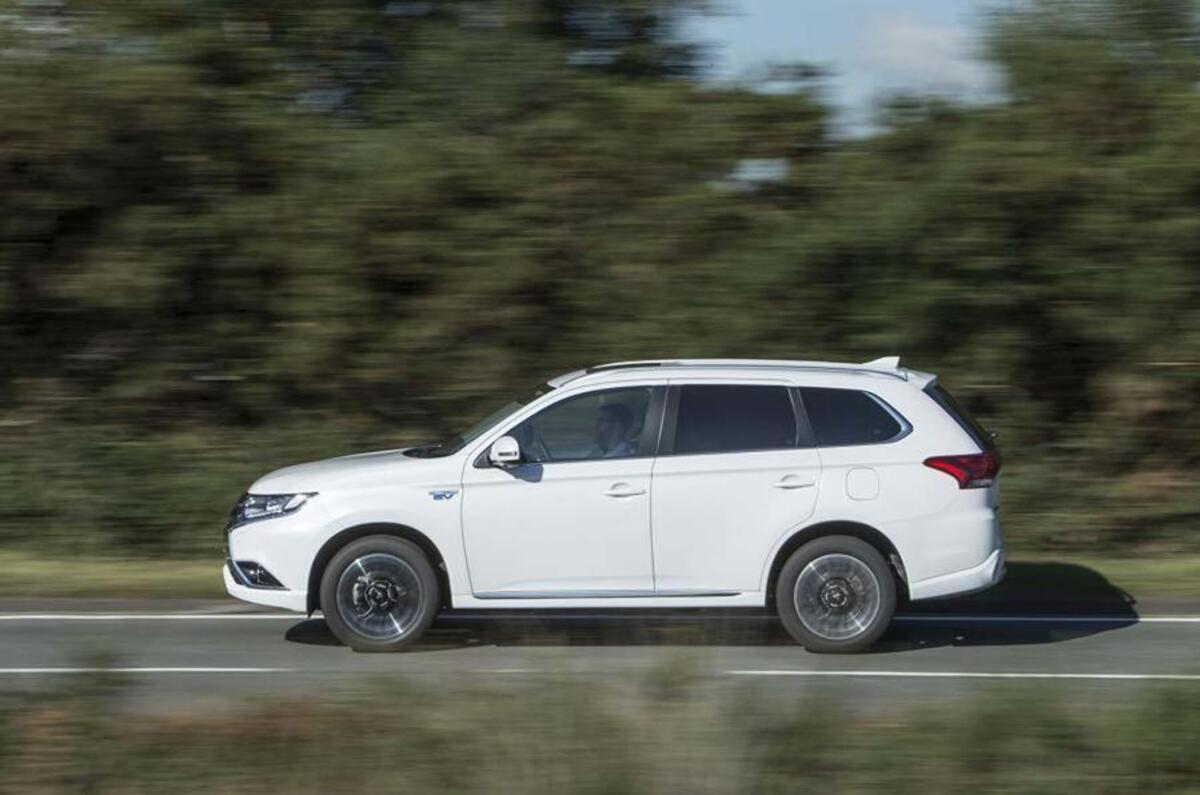Sales of plug-in hybrid vehicles fell by 34.3% in April, a result of the government’s move to abolish its plug-in car grant for everything but pure electric models as well as supply issues.
The figures released by the Society of Motor Manufacturers and Traders showed that, year-to-date, plug-in hybrid vehicle registrations have dropped by 20.4%.
The government announced in October last year that it would, with immediate effect, pull support for plug-in hybrid vehicles and decrease the subsidy for electric vehicles from £4500 to £3500. However, it has taken a few months for existing orders to be fulfilled to see the full effect of the grant’s removal.
An SMMT spokesman said: “Manufacturers are investing heavily to bring ultra-low and zero-emission cars to market, with some 40 plug-in models now available in showrooms, and over 20 more expected to arrive in 2019.
“However, if this still emerging sector is to reach meaningful levels, measures and incentives that build business and consumer confidence will be vital.”
Another factor affecting plug-in hybrid vehicle uptake is supply issues. The introduction of WLTP testing last September led most plug-in hybrids to be taken off sale, as they were not compliant. A new generation of plug-in hybrids including from Audi and BMW will arrive over the next few months.
Overall, alternatively fuelled vehicle registrations grew by 12.7%, with 10,254 cars sold. Petrol-electric hybrids remained the most popular choice, up 31.1% to 6810 units. Electric cars also saw a strong uplift, from 929 to 1517 units, accounting for 0.9% of the market.
Across the entire new car market, registrations decreased by 4.1% to 161,604 units.
Private registrations fell by 10.3% while fleet demand remained steady, growing 2.9%. Diesel car sales, which have been hit hard over the past 18 months, typically seeing declines of a third, have fallen again but at a slower rate, down 9.4%. Petrol demand also dropped by 3%.
Demand for most vehicle segments decreased, with registrations of popular supermini and small family cars falling most significantly, down 14.1% and 10.6% respectively. Demand for lower-volume luxury saloons and sports cars rose.
The Ford Fiesta remained the top-selling car in the UK in April, followed by the Ford Focus, Volkswagen Golf, Nissan Qashqai and Mercedes A-Class.
Read more




Join the debate
Add your comment
PHEV
I love our PHEV, the Outlander ticked all the boxes and it's flexibility means we're getting rid of our ice car when had we got a bev we would have had to keep it. We do 95% of our miles on ev and average about equivalent of 120mpg so extremely efficient and happy
Village idiot Dan wrote:
I could also use a phevs electric range or an ev for my daily commute, unfortunately even with the grant they are too expensive and I dont see why grants should aid those that can afford these expensive vehicles. I know its all semantics as to how there are discounts but what I think should be offered is a reduction in vat to reduce the price on low polluting cars, as well as a lower ved, but that should include petrol and diesel low polluters, this way maybe it would incentivise their purchase.
I don't disagree. I bought
PHEV
I regularly see plug in hybrids on charge using the public charging network in central Milton Keynes. There is a good charging infrastructure there so I can't help thinking that has something to do with it.
I beg to differ
I rarely comment on Autocar but this topic and some of the ill informed comments need reply to.
I own a Kia Niro PHEV. I aqcuired this prior to the government grant being dropped but frankly given I bought 6 month old second hand car having started looking for a BEV, I would have gone ahead anyway as I liked the car because of space, comfort, equipment. As this is a personal buy I did not get much of a reduction of car tax and unlike probably some business users this was not about a low BIK !
Contrary to comments made I do charge my car regularly so that I can take advantage of the 30+ mile EV range for local journeys (I have a charge point in my garage). It also means that when I opt for using its Hybrid Mode I can take advantage of the additional range a full battery gives me. E.g yesterday I drove to the south coast and recorded 90+ mpg. This a lot better than any Diesel / Petrol car of a similar size (in fact probably most cars on the road)
Of course a PHEV is a compromise. Two engines/motors is overkill. I for one will be getting a BEV next time but that is not because a PHEV is bad it is just that a car with a long electric range would be even better
If you have an easily